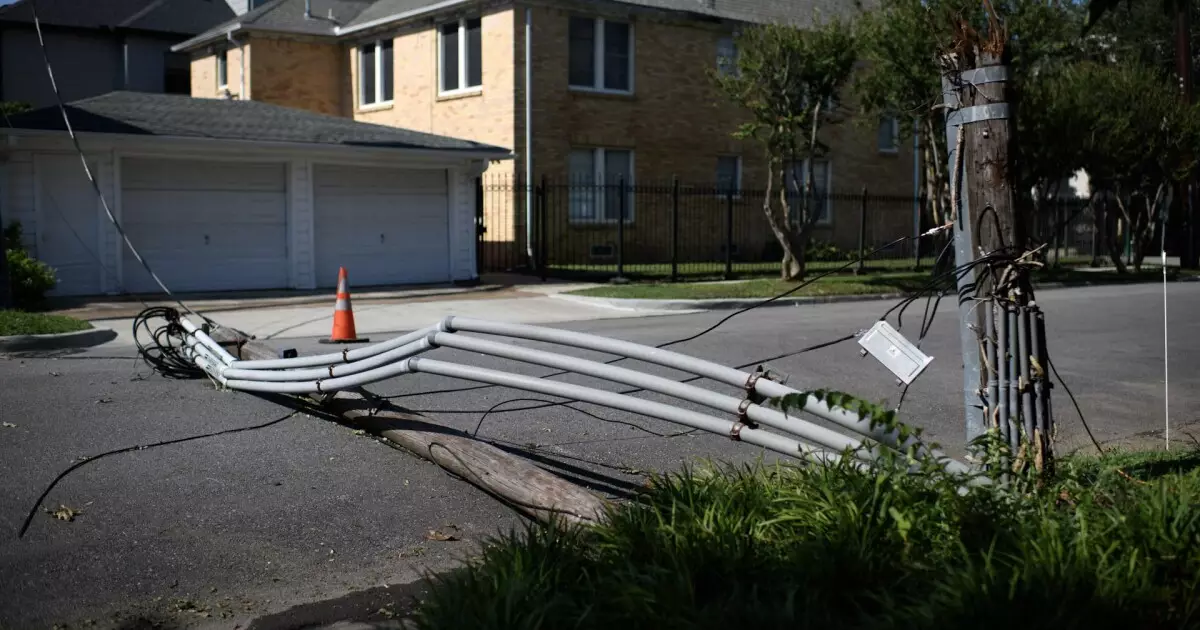Houston’s Fiscal Challenges: Navigating Storm Debris and Budget Deficits

In recent years, natural disasters have wreaked havoc on Houston’s financial landscape, creating a daunting fiscal environment for the nation’s fourth-largest city. The recent storms, including a derecho windstorm in May followed by Hurricane Beryl in July, have exacerbated existing budgetary challenges. These storms left behind significant debris, necessitating extensive cleanup efforts that have placed additional strain on the city’s already fragile budget. As Houston grapples with these financial burdens, it highlights the precarious balance between managing emergency response costs while ensuring sustainable city finances.
Fortunately, the Texas state government stepped in to alleviate some of Houston’s immediate financial woes by releasing $50 million in state funds aimed at assisting the city with cleanup costs. Mayor John Whitmire’s proactive communication with Governor Greg Abbott underscores the importance of collaboration between city and state officials during crises. This funding is crucial in preventing an immediate financial disaster, as the city anticipated having to cover nearly $40 million for debris removal from its general fund amidst an estimated $210.6 million in overall storm-related expenses.
While this latest financial boost has been welcomed, it merely alleviates immediate concerns. The city still faces the daunting prospect of a $230 million budget deficit in the coming fiscal year. The Mayor’s emphasis on collaboration with state officials and local jurisdictions is a strategic shift necessary for building a more resilient framework to address not only cleanup costs but also long-term fiscal stability.
Debate over tax rates has intensified in light of these developments, with city council members considering the possibility of increasing the maintenance and operations property tax rate to secure funding for essential services. However, many council members, including Sallie Alcorn, have voiced the need to explore additional revenue-enhancing measures while also addressing potential cost reductions. The emphasis on taxpayer collaboration indicates a sensitive balancing act, as residents are already wary of increased taxation after facing the financial repercussions of multiple disasters.
Houston’s intricate relationship with state-mandated caps on property tax revenue presents yet another obstacle for budget recovery. With rising operational costs and the pressing need to fund essential public services—including robust compensation agreements for city firefighters—the political and fiscal landscape remains tumultuous. The recent sale of $612 million in general obligation judgment bonds to compensate firefighters demonstrates the lengths to which the city must go to meet the budgetary demands resulting from legal obligations.
While the Federal Emergency Management Agency (FEMA) is expected to cover approximately 75% of the cleanup costs stemming from these storms, the intricacies of federal assistance can induce unpredictability in city finances. Controllers like Chris Hollins have forewarned the potential for significant shortfalls in the budget should current appeals in litigation on property tax revenue allocations falter. These unresolved legal matters compound the city’s fiscal uncertainty and pose a risk of further ratings downgrades from agencies wary of Houston’s improved fiscal health.
The situations in Houston do not exist in a vacuum. Background concerns regarding the financial landscapes of other Texas cities underscore the wider implications of state-wide fiscal management during uncertainty. Dallas, for instance, has recently enacted a $1.9 billion budget plan that includes measures to bolster its pension funding in compliance with state mandates. The inherent complexities of pension obligations highlight the delicate nature of municipal financing across the state, where similar budgetary strains could lead to adverse credit ratings.
Moreover, recent projections from Austin suggest that future budget deficits may worsen as federal stimulus funds dry up. In light of such trends, both city officials and residents must engage in critical discussions surrounding budgetary sustainability and preparedness for financial downturns.
Ultimately, Houston’s fiscal future remains uncertain, with the interplay between natural disaster recovery, state funding, and municipal budget decisions shaping its trajectory. Increased collaboration and innovative financing strategies will be indispensable in navigating the financial complexities that lie ahead. With looming deficits and external pressures from federal and state regulations, the city must act decisively and creatively to safeguard its fiscal health, not just for its own citizens, but as a benchmark for other municipalities facing similar challenges across the nation.





